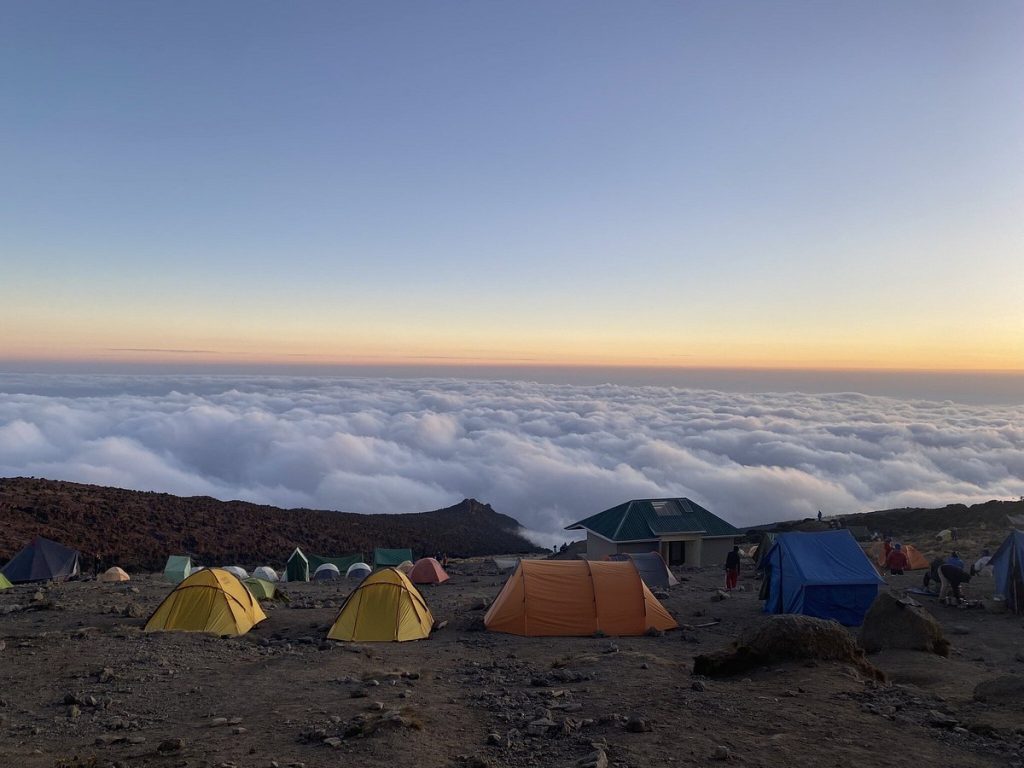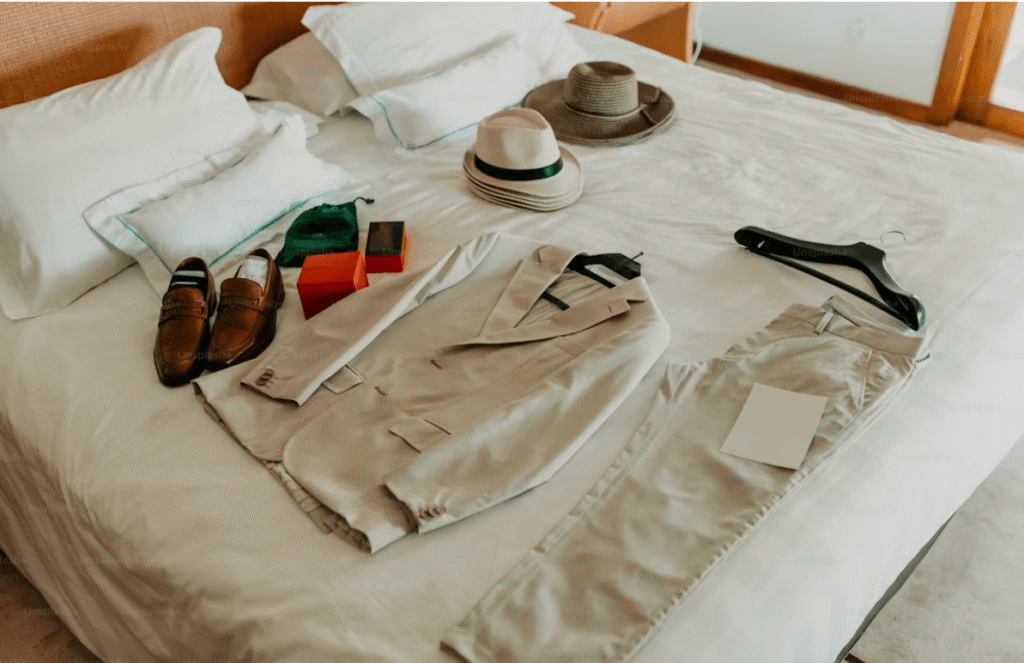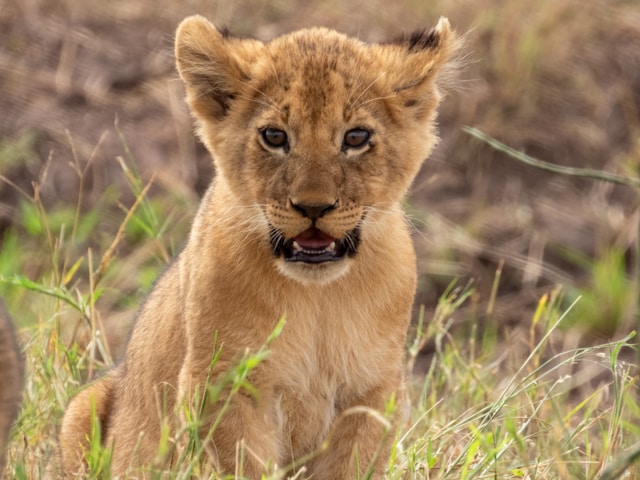1. How do I get more information about a trip with Jolita Safari?
Call us at +255 787 904 233 (TANZ), and we’ll be happy to discuss your plans. Your trip will be customized to your interests although we could use our Classic Safari as a discussion starting point.
Some questions to think about when you begin to plan are:
- What type of trip interests you, e.g., safari, trek, climb, Zanzibar holiday, or a combination of several types?
- What is your primary interest, e.g., wildlife, birds, chimpanzee trekking, photography, mountain climbing, diving, Zanzibares, cultural programs and projects?
- How many days would you like your trip to be, excluding travel to and from Tanzania?
- What time of year would you like to go? Do you want to see the great migration, and are you interested in seeing the wildebeest calving or the wildebeest rutting season?
- How many people will be going on this trip?
- What type of lodging do you prefer, e.g.,Small intimate camp/lodge, Luxury lodge, Luxury mobile camp (to be near the migration herd), Unique small properties off the beaten track, Or a variety of lodges?
- How much walking would you like to do?
Your choices will determine the cost of your trip.
2. How do I reserve a trip with Jolita Safari?
We will work with you to put together an itinerary with suggested lodges and a price. When we reach agreement on an itinerary, we will begin the actual lodging booking process. For that we require a non-refundable deposit of $500, which is payable by check, credit card, or money order, and a completed reservation form. You may request a reservation form by calling us at +255 787 904 233 or by sending us an e-mail request at: office@safariasap.com The booking of lodging can take up to a week or longer. If we are unable to book the lodges in the itinerary, we will substitute lodging of a similar type and cost. Please be aware that during popular tourism periods, some lodges and camps are booked up to a year or more in advance. So, the earlier you begin your planning process, the easier it will be to book the lodges of your choice.
The balance of your safari cost is due 90 days before your safari begins. We prefer a cash (or wire transfer) for the balance.
3. What does an Jolita Safari trip include?
- All lodging and meals
- All airport transfers and transportation within Tanzania, either by plane or vehicle
- An experienced Tanzanian naturalist guide/driver
- All park and game reserve entrance fees
- Unlimited game drives in our safari vehicles with a guaranteed window seat
- Bottled water, soda, and snacks in our safari vehicle
- Beverages in our mobile tent camps
- Laundry service at our luxury mobile camp and at some other lodges/camps
- Luggage transfer/gratuities between lodges
- Enrollment in Flying Doctors Emergency Evacuation Service
- Pre-trip information packet
4. What is not included in an Jolita Safari trip?
- International airfare
- Passport
- Visa fee
- Gratuities for our driver/guide and luxury mobile camp staff
- Alcoholic beverages, although some camps/lodges do include them in the overall price
5. How far in advance do I need to book a trip?
Peak travel time to Tanzania is when the wildebeest migration herd is in the southern part of the Serengeti. It can be difficult to book both plane travel and lodges the last half of January, February, and March unless you begin 8-9 months ahead of time. July, August, and September are also popular times for travel. Currently KLM, and Ethiopian Airline are the only air carrier flying direct from Europe (Amsterdam) to Kilimanjaro International Airport.
6. When is the best time to travel to Tanzania?
Tanzania is notable for its numbers and diversity of wildlife, and game viewing can be good any time, except for April, which is the rainy month in East Africa. November can be a bit rainy, but game viewing is still good, and the wildebeest herd is beginning to head south again.
In particular the annual wildebeest migration attracts many visitors to Tanzania and Kenya. Peak travel time to Tanzania occurs when the massive herd is in the southern part of the Serengeti. The herd moves into that area sometime around the middle of December and remains there during January, February, and March. Some of the herd begins to migrate north into Kenya in June, July, August, and September. But other parts of the herd stay in Tanzania around the Mara River in the very northern part of the Serengeti, and this area is a great place to watch river crossings by the wildebeests and zebras while large crocodiles wait to catch their prey in the water.
There are many resident animals that do not migrate, and the dry season of July, August, September, and October brings these animals to rivers and water holes and provides excellent wildlife viewing. July and August are peak travel times in Tanzania, coinciding with the dry season, and many lodges and camps are booked very far in advance.
Tanzania is actually a year-round travel destination except during April, when many camps are closed because the roads leading to them are impassable. In addition to the variety of animals, there are over 1000 species of birds to be found in Tanzania, making Tanzania a bird-watcher’s delight.
7. What kind of clothes should I bring with me?
Cotton or cotton blend clothes in neutral colors are the best choice for a safari. Sturdy footwear is essential, especially if you intend to do any walking or hiking. A hat and sunscreen are a necessity to protect you from the strong equatorial sun.
All lodges and camps provide laundry service, and some include the service as a part of the lodging cost.
Here are some packing suggestions:
- Light cotton trousers
- Cotton shorts
- Light cotton shirts (long and short sleeved)
- Comfortable walking shoes
- Sandals
- Shower-proof rain jacket/windbreaker
- Sunhat
- Fleece
- Insect repellent
- Small torch
- Bathing suit
- Suntan lotion
- Sunglasses
- Camera (telephoto lens recommended)
- Binoculars
For winter, pack an extra:
- Warm jacket
- Woollen hat
- Scarf and gloves
Batteries, sunscreen and an extensive range of branded safari wear can be bought from most part of Arusha safari shops.
8. Do I need a visa for travel to Tanzania?
A visa is required for almost everyone traveling to Tanzania. Jolita Safari will not include the cost of a visa in your trip,visa can be obtain on arrival and it cost $ 50 usd. Upon arrival at Kilimanjaro International Airport, your passport will be stamped. Please ensure that you are holding a valid passport with sufficient blank pages for entry stamps in each country visited. Alternatively, you may elect to obtain your own visa prior to your trip departure.
9. Are there medical issues about traveling to Tanzania?
Jolita Safari includes information about travel to a sub-Saharan country in your pre-trip information packet. However, you should check with the Centers for Disease Control (www.cdc.gov/travel) for the latest information on travel to Tanzania.
It is essential that you have an anti-malarial medication with you and a mosquito-repellent to prevent being bitten. Malaria is endemic throughout most of Tanzania except at elevations higher than 6000 feet. Malaria-carrying mosquitoes usually bite after dusk and before dawn, so it’s important to take extra precautions during this time period to avoid being bitten. This means wearing clothing with long pants and sleeves and applying insect repellent to exposed skin as well as sleeping under mosquito netting.
Tsetse flies are an unwelcome annoyance but do not usually present a health risk.
10. Is Tanzania politically stable?
Tanzania is a stable multi-party democracy. Despite its enormously diverse culture of more than 120 tribes, it is remarkably free of ethnic tensions, especially when compared to its neighbors.
11. What is your cancellation policy?
Our cancellation policy is as follows: if you cancel more than 90 days from your departure date, the deposit is forfeited. If you cancel less than 90 days prior to the departure date, 75% of the safari price is forfeited. If the cancellation is less than 50 days prior to your departure, 100% is forfeited. Cancellations must be in writing. Leaving a safari in progress, for any reason whatsoever, will not result in a refund, and no refunds will be made for any unused portions of a safari.
We suggest that you purchase trip insurance to protect your investment and recommend The Travel Insurance Comparison Site Insure My Trip to compare policies and features. Over 100 insurance plans from well-known insurance companies are compared for US, Canadian, and other world-wide travelers.
ON SAFARI
12. What kind of food will I have while on safari?
You will eat well on safari. The food at the lodges and camps that we book is nicely prepared, well balanced, and hygienically safe. If you have any dietary restrictions, please let us know, and we will insure that your food options will take your dietary restrictions into account.
13. Is it safe to drink the water?
We recommend that you drink only bottled water (not tap water) and use bottled water for tooth-brushing as well. Each lodge and camp that you visit will supply you with bottled water in your room or tent, and bottled water will be available at meals as well as in the vehicle during game drives.
14. What kind of weather will we experience?
Tanzania is just south of the equator and is warm all year round. The geographic variations create three different climate areas: the eastern coastal area is tropical—hot and humid; the central plateau (3000 to 7000 feet) is hot during the day (75 to 90 degrees) and cool at night, sometimes down into the 40s, depending upon the altitude; and the highland areas are more temperate. The coolest months throughout the country are from June to October, which is Tanzania’s winter, and the warmest months are from December to March, which is Tanzania’s summer. When you visit the northern Tanzanian national parks, your safari will take you to a variety of places within the central plateau.
15. How are the roads in Tanzania?
From Arusha, the start of your safari, to Tarangire and the Ngorongoro Crater entrance gate, the road has an excellent tarmac surface. Within the national parks, the roads are gravel, and they can vary, depending upon when they were last graded. Plan for bumpy roads with some dust, depending upon the season when you travel.
16. Will I have electricity for using and charging my camera equipment?
You will be able to charge your camera batteries and use your back-up equipment, for those of you who shoot with digital cameras. But, you should bring plug adaptors and a converter because Tanzania’s electricity is 220-250V AC, 50Hz, but subject to power fluctuations.
You will be able to charge your equipment at most camps and lodges, although hours of availability may vary. At our luxury mobile camps, you may ask our camp staff to run the generator so that you can charge your batteries or download your photographs to a storage device. You can also charge batteries during game drives using the inverter that is installed in the vehicle.
17. Where can I stay?
Tented Camps and Accommodation on Safari
One of the best ways to experience the African bush is to stay in one of the fabulous tented camps. The accommodation caters for every budget and level of comfort. You can expect running water, en suite facilities and electricity provided either by solar power or generator. In mobile camps there will be hurricane lamps.
In a tented camp the walls will be canvas, you should not be concerned or worried in anyway. Most visitors love to hear the noises of the African night. There is always 24 hour security and if there are animals in camp, the staff will be extra vigalent.
Jolita Safari can provide you with seamless and safe African holiday’s tailormade to suit every desire and matched to any budget. There is a wide variety of hotels, personalised privately owned properties, guesthouses, boutique hotels and hospitality establishments to choose from, as well as a range of flights, self-drive trips and guided tours. Our professional travel consultants will work with you every step of the way to ensure that all your requirements are catered for.
18. Is Africa a good family destination?
Africa offers wonderful value for families, although some establishments cater more for children’s enjoyment than others. Please note that the recommended age for children on safari in East Africa is 3 years and older. For safety reasons, children 2 years and younger are generally not allowed on game drives. Some lodges do not take children under 8 years – Jolita Safari will advise you of the best family travel options.
19. Will I be safe?
Guest safety is of paramount importance and even though Africa is a safe destination, it is wise to take certain standard security precautions. Please carry a record of your passport number, airline tickets and travellers cheques, and ensure that these items are kept in a safe place. Make use of your hotel safety deposit box for expensive items and never leave baggage or personal items unattended, especially at airports.
20. Where can I change currency?
As certain African currencies are difficult to change outside the country of origin it is advisable to only change money as required. Most international airports have banks where money can be changed, and facilities are usually available at hotels and lodges. Most major credit cards are accepted at lodges/hotels, shops and restaurants. As exchange rates fluctuate, please check with your local bank or business media prior to departure. ATMs are available throughout Tanzania.
21. What wildlife photography advice can you give?
African safaris offer many excellent photographic opportunities. We recommend that you use a telephoto lens (at least 80-300mm in size) for the photography of birds and game, as well as a wide-angle lens. As most game-drives are in the early morning or late afternoon, high-speed film (200/400ASA) should be used. Film and batteries are usually available along major tourist routes and from lodges, but we advise that you purchase memory card, lens and batteries prior to your departure. A lens hood and ultra-violet filter are advisable and a good bag for your equipment including a dust cover (plastic bag) is essential.
24. Do you Need Travel Insurance On Safari
To travel to Tanzania you must be in possession of a valid travel insurance policy covering the full period of your holiday. Please check your cover very carefully ensuring that you are satisfied paying particular attention to the amount of cash you are carrying.
23. What should I tip?
Tips are not included in the cost of your safari. We recommend you tender small amounts to your guide, lodge/hotel staff. Your lodge manager will provide you with guidelines for tipping if required. Where restaurant meals are involved, the tipping standard is usually 10% of the bill.
24. How do I get to the lodges from the airport?
Jolita Safari offers a professional, reliable, welcoming meet and greet service: whether you arrive at a large, cosmopolitan airport or a tiny National park airstrip, the welcome will be warm and dependable. Our expert travel consultants will assist you every step of the way to ensure seamless and safe travel arrangements.
25. Is it dangerous to camp among wildlife in Tanzania?
In principle, animals do not seek out people and a tent canvas is the same as a wall for a wild animal. Moreover, we usually camp in closed camping resorts. It is important to follow the advice of the tour guide.
26. Why is camping also included during hotel trips in the Serengeti and Ngorogoro?
That is a conscious choice by Jolita Safari. We camp in the heart of the Serengeti, where there are generally many cats. Camping gives us the maximum time to look for animals during the safari. Moreover, it has become apparent that the majority of our travelers who choose a hotel trip really enjoy camping for a few days to add a safari experience to the trip.
27. What footwear should I take to Tanzania?
It is useful to take outdoor slippers with you. Hiking boots are possible for closed shoes, but this is not really necessary. Sports shoes or walking shoes with a good profile are fine.
28. Can I dive or snorkel in Tanzania?
There are various diving and snorkeling options both on the smaller islands off the coast of Dar Es Salaam and of course on Zanzibar. You can take excursions from Stone town with the option of snorkeling, but there are also diving schools at the Nungwi Zanzibar location that provide snorkeling and diving trips.
29. Going to the loo on Safari
What happens if you need the loo on safari? W/C’s or toilets are dotted around the game reserves but usually it’s a matter of getting native, our guides will find a suitable spot, check around for wildlife and then be discreet whilst you take a natural break.
30. Do I need a mosquito net in Tanzania?
During Jolita Safari camping trips you spend the night in tents. A mosquito net is then not necessary, because the tent functions as a mosquito net, provided you keep the tent properly closed. Mosquito nets are available in the hotels if necessary. Just in case there is a hole in it somewhere, you may want to bring some tape or something similar to seal it up. You can of course inquire at reception whether there is another mosquito net in stock in that case. In any case, also take anti-mosquito cream (with a high DEET factor) and after bite with you.
31. Can I make (mobile) calls, use the internet or is there WiFi available?
Your mobile phone has a reasonable range, except in national parks and smaller remote places. In the larger cities the range is usually good (to be sure, it is best to check with your own provider or check their website). In the larger cities you can often make international calls and use the internet, but the connection and speed are not always good. WiFi is not yet available much. You can also purchase internet cards at affordable rates.
32. Are Jolita Safari tours through Tanzania also suitable for children?
In principle, all Jolita Safari trips can be undertaken by families with children. During the school holidays, Jolita Safari has even developed special trips that pay more attention to children and culture. We like to bring the children of our participants into contact with local children, something that is highly appreciated by our participants. For the summer holiday edition, take a look at the ‘Family Safari’ trip. If you have any questions about this, please feel free to call us for additional explanation and advice.
33. When does the great wildebeest migration take place in Tanzania?
The great migration takes almost a whole year. At the beginning of the year, the wildebeest (wildebeest) stay for a while in the southeast of the vast Serengeti savannah (Ndutu plain), where they all give birth to their young at the same time. In March/April/May, the great migration starts and hundreds of thousands of wildebeest and zebras walk towards the north. The herds can often be found in the area of the central Seronera valley or on the west side of the Serengeti game reserve. From June to August/September the wildebeest cross the Western Corridor, the Groumetti River, and in November they spend a month in the Masia Mara in Kenya.
Planning a trip to East Africa, specifically during the Great Migration, is difficult, because it is one of the greatest wonders of the world. It is difficult to say when the animals are somewhere. Planning a trip specifically for this can therefore lead to disappointments. We can guarantee that you will see many special wild animals! Many travelers would like to see something of the great migration, one of the most spectacular events in the animal kingdom, in which large herds of wildebeest (wildebeest), zebras and some antelope species are on their way to ever new green pastures on the ‘infinite’ plateaus of the Serengeti and Masai Mara.
The area in which these animals roam is as large as the Netherlands, so we cannot guarantee that we will encounter the migration. It is true that the Serengeti and the Masai Mara are among the most animal-rich places in the world, even when there is no migration. Many animal species do not migrate at all or in a different way, such as many straggling zebras, buffalos, elephants, giraffes and numerous gazelles and antelopes. The lions, leopards and cheetahs also do not migrate. That is why it is always an excellent time to visit the various National Parks.
34. Is it advisable to take binoculars with you?
It is definitely advisable to take binoculars with you. You often have very beautiful animals at a great distance, which you cannot easily see with the naked eye.
35. Can you pay by card anywhere in Tanzania?
It is possible to pay by card in large cities such as Dar es Salaam and Arusha as well as in smaller places, and certainly with a credit card with the MasterCard/Visa sign. It is also possible to pay by card on Zanzibar. We advise you to bring at least USD 50 per person for the visa, to be paid at customs at the airport (no photo required).
36. People, Culture and Customs in Tanzania
Most Tanzanian people are incredibly friendly and greetings form an important part of your visit. Most people will always enquire about your health and well-being. If you can master just a few basic words you will be enthralled by the response you receive.
English is widely spoken in the main cities and towns. Out of the main towns and cities you will hear many local tribal dialects.
African people are generally very modest In the towns and cities you will notice most are dressed quite smartly. We ask that you please dress modestly, very short skirts, bikini tops and cut off denim shorts are frowned upon anywhere other than the Zanzibares. Please also note that nude/topless bathing is an offence.
A diversity of religious beliefs is testament to the early Asian influence, particularly in coastal areas. The main religions are Islam, Christianity, and Hindu and there are, of course, other traditional beliefs.
We always ensure that our operation, and the people we work with, manage their business in an ethical and responsible manner, and the safari we offer to you is balanced and in keeping with the local environment.
You can contribute to this just by observing a few of the local customs ensuring that your impact is kept to a minimum, with the simplest of tasks, such as discarding your rubbish in an appropriate manner and obeying rules within National Parks, which are designed to protect you as well as the environment.



